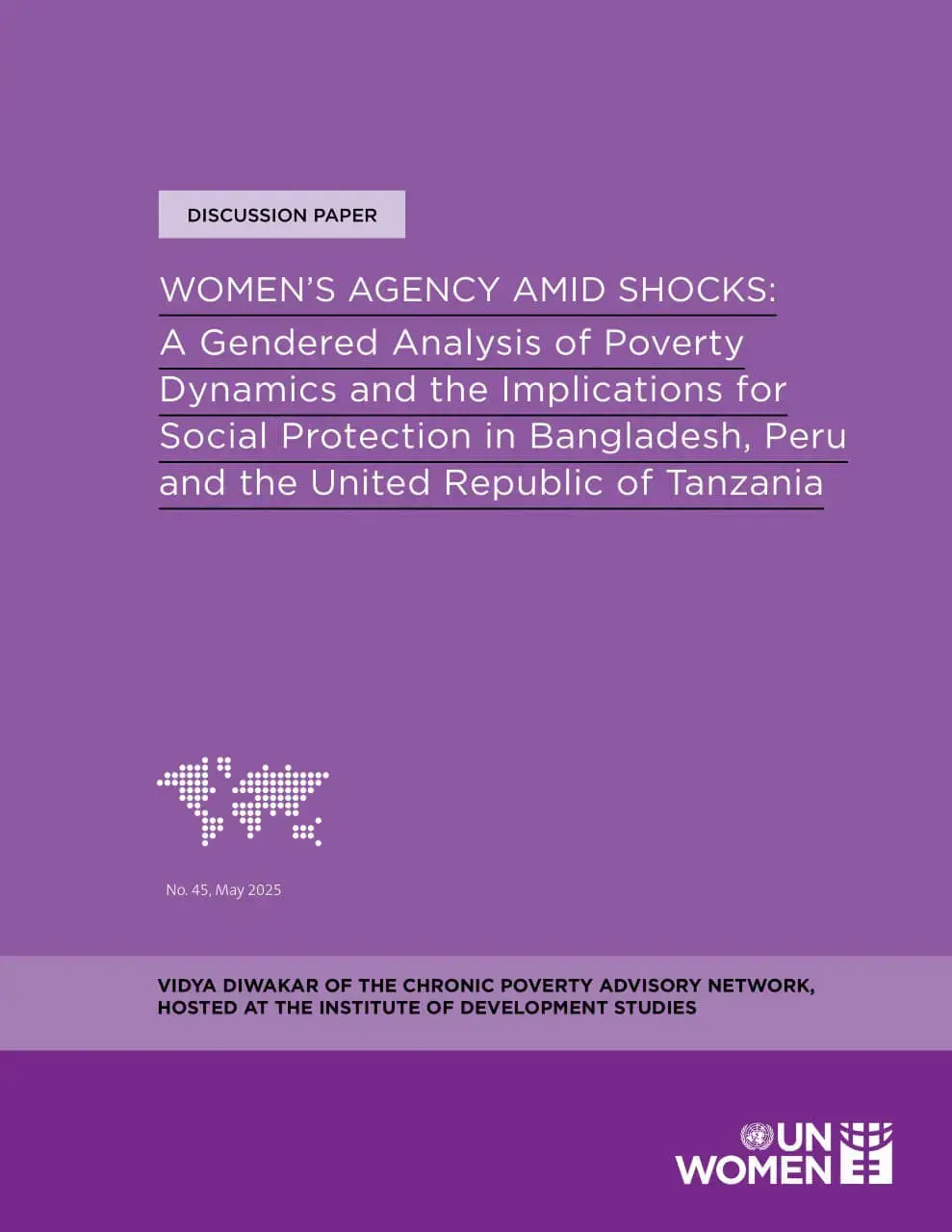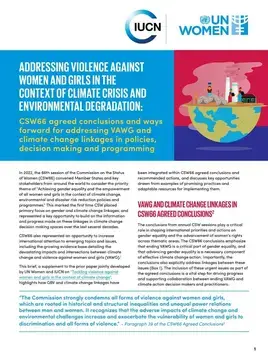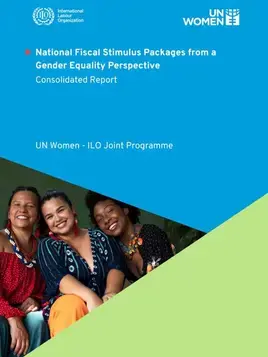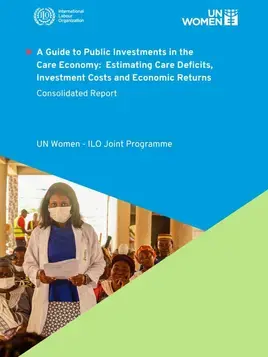
Women’s agency amid shocks: A gendered analysis of poverty dynamics and the implications for social protection in Bangladesh, Peru and the United Republic of Tanzania
The world has experienced multiple crises in recent years: the COVID-19 pandemic; food, fuel, and financial crises; climate-related disasters; and violent conflict. The need for universal, gender-responsive social protection systems is thus increasingly urgent.
This paper employs quantitative panel data and qualitative interviews to present an analysis of gender, poverty dynamics, and social protection in three countries spanning different geographies—rural Bangladesh, Peru, and the United Republic of Tanzania—amid shocks and crises. It also examines the implications of the analysis results for social protection system design and implementation.
Results highlight high rates of transient poverty in all three countries, reflecting the underlying vulnerability of households and crisis-driven downward income mobility. In the face of shocks, women’s resources (for example, education levels and ownership of phones or financial accounts) and agency within and outside of the household (for example, right to sell land and comfort in speaking up on public needs) are a critical means of supporting household resilience. However, adverse financial inclusion and other barriers constrain these efforts. Moreover, low social protection coverage has limited the ability of households, and women within them, to draw on social protection entitlements to maintain resilience during shocks.
Although there was a surge in social protection responses during the height of the COVID-19 pandemic, results suggest that this remained largely inadequate in guarding women’s resilience. Based on the study findings, we derive implications for policymakers and practitioners regarding the gender-responsive design and implementation of social protection during shocks, stressors, and crises.
This paper is part of the “UN Women discussion paper series”.


